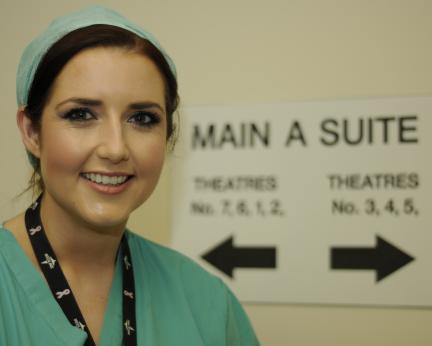This is an exceptionally rewarding role. It’s allowed me to develop professionally so that I’m more confident and have a greater understanding of the patient experience because I look after patients at all stages of their care.
But working as a surgical care practitioner can also be challenging because of a lack of understanding about the role. It doesn’t sit within traditional boundaries so it can be difficult to understand what we do and the contribution we make to patient care. I’m very fortunate to work with great clinicians who have always supported my development and valued the contribution I make.
When the surgical care practitioner role was first established, there were concerns it would inhibit junior doctor training. But I believe it enhances training, particularly in the operating theatre where the SCP is able to provide expert practical assistance while the surgeon trains the junior doctor.
The team around us changes quite regularly but SCPs are a constant, so we provide consistency and continuity of care which in turn enables us to help junior doctors settle in when they rotate to a new area.





